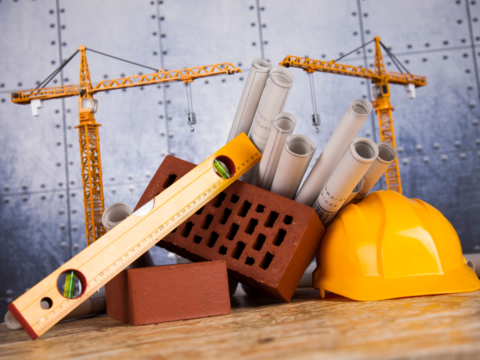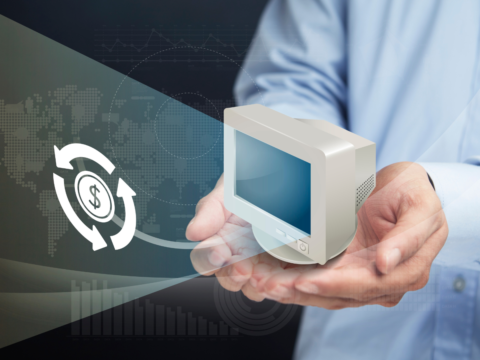In business, one key decision can significantly sway your financial health and operational efficiency: should you lease or purchase your equipment? This choice is more than a simple business funding; it’s a strategic move that can impact your business’s trajectory.
Leasing equipment might appear attractive with its lower upfront costs and flexibility, particularly for businesses prioritizing cash flow or those needing state-of-the-art technology on a rotational basis. On the other hand, purchasing equipment outright can be a smart long-term investment, potentially offering cost savings over time and the benefit of asset ownership.
But it’s not a one-size-fits-all scenario. This decision hinges on multiple factors – from your business credit scores to the type of equipment needed and how rapidly it becomes obsolete. Each route – leasing or buying – carries a unique blend of advantages and drawbacks. Making an informed choice is crucial, as it affects your current financial situation and your business’s ability to grow and adapt to a changing market landscape.
Understanding Equipment Leasing
Equipment leasing is a financial agreement where businesses rent equipment instead of buying it outright. Typically, this involves a contract with fixed terms, where you pay a monthly fee to use the equipment. At the end of the lease term, you can purchase the equipment, renew the lease, or return it.
Pros of Equipment Leasing:
- Lower Upfront Costs: Leasing requires minimal initial investment compared to purchasing, freeing up capital for other areas of your business.
- Maintenance Support: Often, the leasing company takes care of maintenance and repairs, reducing your burden of equipment upkeep.
- Flexibility and Up-to-date Technology: Leasing allows you to upgrade to the latest equipment more frequently, which is especially beneficial in industries where technology evolves rapidly.
Cons of Equipment Leasing:
- Higher Long-Term Costs: Over time, the total amount paid for leasing can exceed the cost of purchasing the equipment outright.
- Lack of Ownership: You don’t build equity in the equipment, as it remains the property of the leasing company.
- Contractual Obligations: Leasing contracts may have terms that limit your flexibility, such as penalties for early termination or restrictions on usage.
For businesses, weighing these pros and cons against their specific needs and financial situation is crucial in deciding whether leasing equipment is right. The decision can significantly impact your operational efficiency and financial health, making it a critical consideration for any business contemplating equipment acquisition.
Understanding Equipment Purchasing
Purchasing equipment outright means your business pays the full cost upfront and becomes the owner of the equipment. This method of acquisition has its distinct set of advantages and disadvantages.
Pros of Purchasing Equipment:
- Ownership: The biggest advantage is you own the asset. There’s no need to worry about the contractual limitations of a lease – the equipment is yours to use as needed.
- Long-Term Cost Savings: Although the initial investment is significant, owning equipment can be more cost-effective in the long run. You avoid ongoing lease payments, which can add up to more than the equipment’s value over time.
- Tax Advantages: Owning equipment can offer tax benefits. In many cases, you can deduct the depreciation of the equipment from your business income, providing a valuable tax shield.
Cons of Purchasing Equipment:
- Significant Upfront Costs: The initial outlay can be substantial, impacting your business’s cash flow and limiting funds available for other investments.
- Depreciation: Equipment typically depreciates over time, losing its value. This can be a concern, particularly for technology that becomes obsolete quickly.
- Maintenance Responsibilities: Ownership means you’re responsible for all maintenance and repairs, which can be costly and time-consuming.
For businesses considering equipment acquisition, weighing these pros and cons is crucial. Purchasing equipment may suit businesses with enough capital, looking for long-term investments and tax advantages. However, the significant upfront costs and responsibilities that come with ownership are important factors to consider.
Making the Right Choice for Your Business
Deciding between leasing and purchasing equipment for your business hinges on a thorough evaluation of your specific needs and financial situation. Here’s a guide to help you navigate this crucial decision:
- Understand Your Budget: Your current financial health is the starting point. If your capital is limited, leasing might be the more feasible option, avoiding the hefty initial outlay of purchasing. But if you have sufficient funds, purchasing might make more financial sense in the long run.
- Consider Equipment Lifespan and Technological Obsolescence: How quickly does the equipment become outdated? If you’re dealing with technology that evolves rapidly, leasing can offer the flexibility to upgrade without the financial burden of owning obsolete equipment. Purchasing could be more cost-effective for equipment with a long useful life that doesn’t become outdated quickly.
- Analyze Long-Term Cost Implications: Evaluate the total cost of ownership vs. leasing over the equipment’s lifespan. Factor in maintenance, repair costs, and potential resale value if you choose to purchase. For leasing, consider the total lease payments over the term.
- Assess Tax Implications: Both options have different tax implications. Purchasing usually allows for depreciation deductions, while lease payments can often be deducted as a business expense. Consult with a financial advisor to understand which option is more tax-efficient for your business.
- Align with Business Growth Projections: Consider your business’s future growth. If you anticipate rapid growth or scaling down, the flexibility of leasing might be advantageous. For stable businesses with predictable needs, purchasing could provide stability and long-term savings.
- Evaluate Maintenance and Repair Responsibilities: If you lack the resources for maintenance and repairs, leasing, which often includes maintenance services, might be preferable. If you have the capacity to manage maintenance, purchasing could give you more control.
It’s important to note that there’s no one-size-fits-all answer. The best choice depends on a balanced consideration of your financial capacity, the nature of the equipment, your business’s growth trajectory, and how you manage your resources. Carefully weigh these factors to make a decision that aligns with your business’s long-term objectives and operational needs.
Financial Implications and Tax Considerations
When it comes to business equipment acquisition, the financial implications and tax considerations of leasing versus purchasing are pivotal.
Leasing:
Financially, leasing is gentler on your cash flow since it avoids a large upfront expenditure. This means more liquidity for your business, which can be crucial for operations and other investments. However, remember that while leasing might be more affordable in the short term, over the long term, it can end up costing more than purchasing the equipment outright.
From a tax perspective, lease payments are generally considered a business expense, making them deductible. This can provide some relief during tax season, as it can lower your taxable income. But, unlike purchasing, you’re not building equity or an asset base for your business.
Purchasing:
Purchasing requires a substantial initial investment, which can significantly impact your cash flow. However, owning equipment can be more economical in the long run, especially for equipment with a long lifespan.
Tax-wise, purchasing offers the benefit of depreciation. You can write off the cost of the equipment over its useful life, providing a yearly tax benefit. Additionally, owning the equipment means it becomes an asset on your balance sheet, which can be beneficial for your business’s financial health in the eyes of lenders and investors.
Balancing these financial and tax implications is crucial. Each option has its merits, and the right choice depends on your business’s immediate cash flow situation, long-term financial strategy, and tax circumstances. Consider consulting with a financial advisor to understand which option best aligns with your business’s specific needs.
Empower Your Equipment Decisions with BizFund’s Financing Expertise
BizFund isn’t just another financing company; they are strategic partners committed to empowering your equipment acquisition decisions. Whether you’re leaning towards leasing for its flexibility or purchasing for long-term benefits, BizFund offers tailored financing solutions that align seamlessly with your unique business needs and financial strategies.
BizFund stands out with its in-depth understanding of different industries, offering personalized advice and solutions. They recognize that each business has unique challenges and opportunities, especially regarding equipment financing. That’s why they’re dedicated to providing solutions that are as unique as your business.
If you’re navigating the complex equipment leasing or purchasing decisions, reach out to BizFund. Their expertise in financing will guide you toward the best choices for your business. With BizFund, you’re not just choosing a financier; you’re choosing a partner committed to your business’s growth and success. Apply now and take the first step towards a smarter equipment financing strategy with BizFund.




